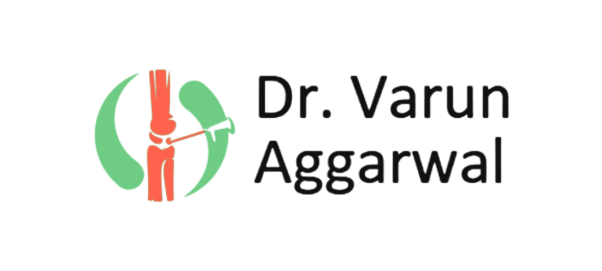Vitamin B12 is one of the eight vitamins that make up the vitamin B group, and it’s the only one that the body can store. It is a vitamin that your body requires but cannot create on its own. Vitamin B12 serves a variety of functions in your body. It is required for nerve tissue health, brain function, and for the creation of red blood cells. Our liver stores vast amounts of vitamins, which can last months or even years before being released back into the bloodstream when needed. This article will explore the importance of vitamin B-12 for our nerves, sources of vitamin B-12, and how its deficiency affects our nerves.
The Importance Of Vitamin B-12 For Our Nerves
Vitamin B12 is important for the nervous system because of its role in cell development and lipid metabolism. It plays a critical role in the regeneration and creation of nerve fibre sheaths (also known as myelin sheaths), which protect nerves from loss of charge and ensure the proper and effective transmission of nerve flows, or the information to be sent. When our vitamin B12 levels are balanced, our energy metabolism improves, making us feel energetic and listless.
Vitamin B-12 is not only beneficial for motor function and sense of touch, but also necessary for our central nervous system, which includes our brain and spinal cord. Vitamin B12 is also involved in the creation of essential messenger molecules like neurotransmitters and hormones, which affect our brain function and, as a result, our perception, mood, and state of mind.
It is simpler to deal with hectic everyday life when you have a sufficient amount of vitamin B12, and your nerves are not as worn out. A burden does not become an overburden right away, and an insufficient supply does not become a shortfall right away. If a deficit has already been discovered and deficiency symptoms have already arisen, a particular vitamin B12 therapy can be started in cooperation with your doctor to swiftly ease symptoms. It is possible to improve nerve damage over time if it is not too severe. Because vitamin B12 insufficiency can have catastrophic implications, a minor undersupply should be avoided at all costs.
Main Sources Of Vitamin B-12
Here are the main veg and non-veg sources of Vitamin B-12
Non-Vegetarian Sources Of Vitamin B-12
Vitamin B12 can be obtained from a variety of sources by non-vegetarians. Vitamin B12 is found in fish, chicken, meat and eggs. Animal products also include vitamin B12. Vitamins B2 and B12 are plentiful in eggs. 2 eggs per day will provide 46 percent of your daily Vitamin B12 intake.
Vegetarian Sources Of Vitamin B-12
Vitamin B12 is only found in a few vegetarian meals, although it is abundant in dairy products such as milk, curd, and cheese. Vitamin B12 can be obtained in sufficient amounts from these meals. Aside from that, almonds, tofu, cashews, oats, and coconut milk all contain vitamin B12.
The Symptoms of the Deficiency Of Vitamin B-12
When the body does not get enough vitamin B-12, it is called vitamin B-12 deficiency. It has the potential to cause severe or irreversible harm, particularly to the neurological system and brain. Deficiency symptoms such as confusion, memory issues, depression, and tiredness can be triggered by even slightly lower-than-normal vitamin B-12 levels. These symptoms, however, are insufficient to identify vitamin B-12 deficiency .
Constipation, loss of appetite, and weight loss are further signs of vitamin B-12 deficiency. Neurological abnormalities, such as numbness and tingling in the feets and hands, might occur as symptoms worsen. Some people may have trouble keeping their balance. If left untreated, infants who are deficient in vitamin B-12 may exhibit strange movements such as face tremors, as well as reflex issues, feeding difficulty, irritability, and ultimately growth problems.
Vitamin B-12 deficiency puts your nerves and brain at danger for severe damage. People who don’t get enough vitamin B-12 are more likely to develop psychosis, mania, and dementia. Anemia can also be caused by a lack of vitamin B-12. Fatigue, shortness of breath, and an irregular heartbeat are the most frequent signs of anaemia.
The Recommended Dose Of Vitamin B-12
The amount of vitamin B12 you need depends on your age, gender, lifestyle, and other factors.
Adults under 50 years of age
The RDI for vitamin B12 is 2.4 mcg for adults over 14, which can be met by food. Supplements are normally not advised for these individuals. Eggs, tuna, and steak are examples of foods that can be included in the diet. However, if any of the above causes prevent B12 absorption or ingestion, supplements may be required.
Adults over 50 years of age
Vitamin B12 deficiency is more common in senior citizens. With ageing, the body creates less stomach acid, which prevents B12 from being absorbed from meals. Sixty-two percent of persons over the age of 65 are found to have blood levels that are below the recommended levels. To get adequate amounts of B12, the National Academy of Medicine suggests supplements and fortified meals, such as fortified coconut milk or fortified cereals.
Vegetarians and Vegans
People who adopt a strict plant-based diet must also adhere to the same guidelines. If they’re vegetarians or vegans, though, it’s more difficult for persons under 50 to fulfil the RDI of 2.4 mcg. According to some studies, vegans should take up to 6 mcg of vitamin B12 per day. For vegetarians, there is no clarity on the subject.
Pregnant Women
Pregnant women require more B12 than the general population. Birth abnormalities have been linked to low amounts of this vitamin in babies. It can also put the babies at danger of being born with a low weight. The RDI for pregnant women is thus 2.6 mcg. Prenatal vitamins can be taken or a well-planned diet can suffice.
Breastfeeding Women
Breastfed infants with vitamin B12 insufficiency are more likely to have developmental delays, according to Healthline. They are also prone to irritation and a loss of appetite. So, for breastfeeding mothers, the RDI for vitamin B12 is 2.8 mcg.
Click here to contact for more information


